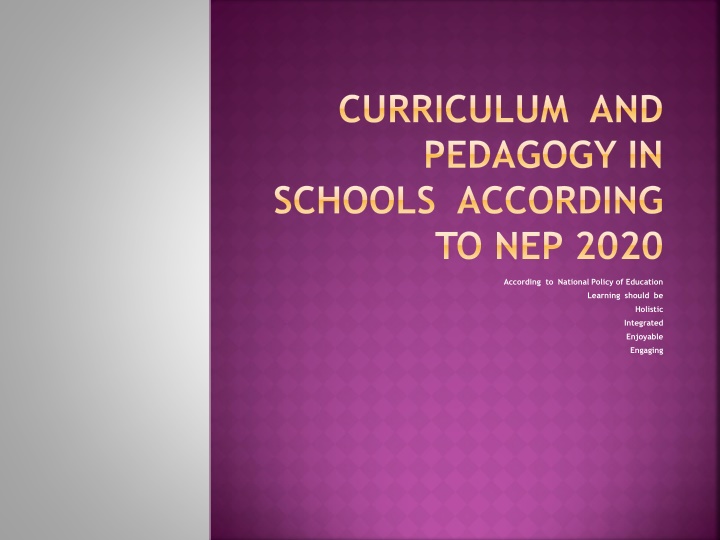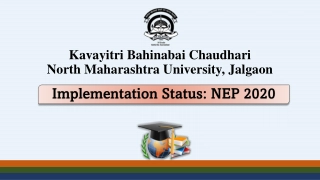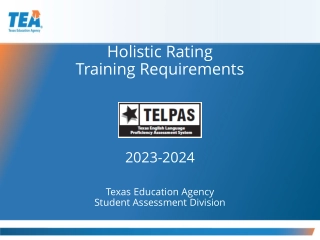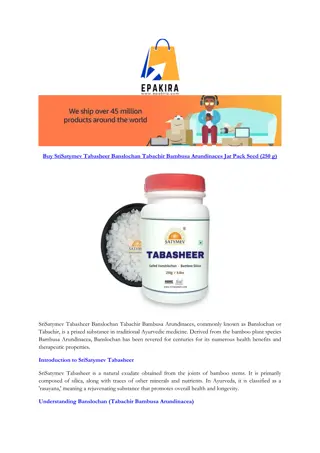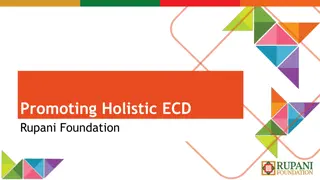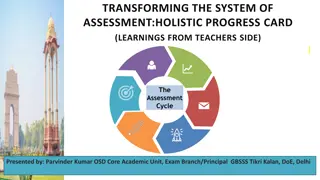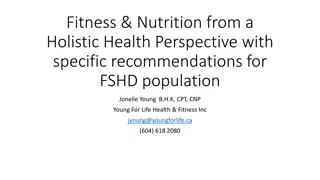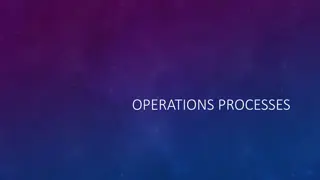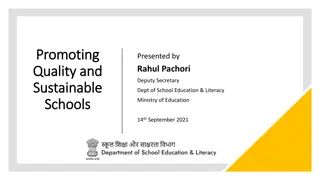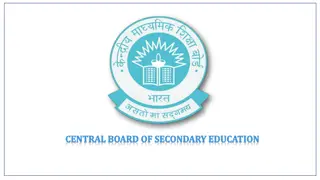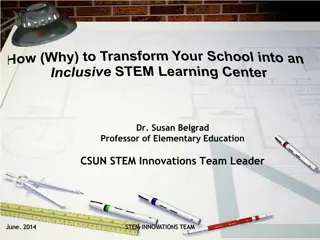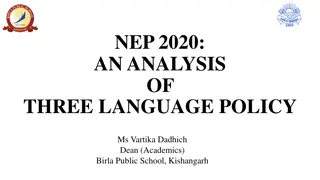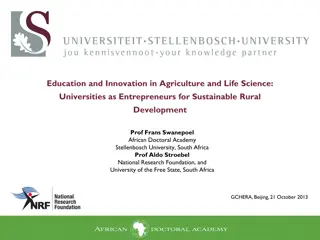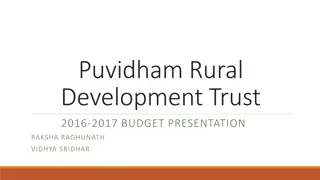Transforming Education: Implementing NEP 2020 for Holistic Development
National Policy of Education 2020 emphasizes holistic, enjoyable, and engaging learning through a restructured curriculum and pedagogy in schools. The key changes include a new 5+3+3+4 design, reducing curriculum content for essential learning and critical thinking, promoting experiential learning, empowering students with course choices, fostering multilingualism, and integrating essential subjects. The educational structure comprises four stages - Foundation, Preparatory, Middle, and Secondary stages with a focus on flexible, activity-based learning and holistic student development. The approach aims to enhance cognitive development, character building, and critical thinking, shifting from rote learning to conceptual understanding. Assessment methods are tailored for student development, including support for gifted students and those with special talents.
Download Presentation

Please find below an Image/Link to download the presentation.
The content on the website is provided AS IS for your information and personal use only. It may not be sold, licensed, or shared on other websites without obtaining consent from the author.If you encounter any issues during the download, it is possible that the publisher has removed the file from their server.
You are allowed to download the files provided on this website for personal or commercial use, subject to the condition that they are used lawfully. All files are the property of their respective owners.
The content on the website is provided AS IS for your information and personal use only. It may not be sold, licensed, or shared on other websites without obtaining consent from the author.
E N D
Presentation Transcript
CURRICULUM AND PEDAGOGY IN SCHOOLS ACCORDING TO NEP 2020 According to National Policy of Education Learning should be Holistic Integrated Enjoyable Engaging
IN NEP 2020 CURRICULUM AND PEDAGOGY IN SCHOOLS CNANGES ON THE FOLLOWING HEADS 1.Restructuring school curriculum and pedagogy in a new structure that is 5+3+3+4 design. 2.Holistic development of learners. 3.Reduce curriculum content to enhance essential learning and critical thinking. 4.Experiential learning. 5.Empower students through flexibility in course choices. 6.Multilingualism and the power of language.
7.Curricular integration of essential subjects,skills and capacities. 8.National curriculum framework for school education. 9.National textbooks with local content and flavour. 10.Transforming assessment for student development. 11.Support for gifted students /students with special talents.
RESTRUCTURING SCHOOL CURRICULUM AND PEDAGOGY STRUCTURE OF SCHOOL EDUCATION There are four stages of school education 1.Foundation stage---Anganwadi(3-6 years) Pre school(7-8 years) (grade1-2) 2.Prepatory stage---(8-11years) ( grade3- 5) 3.Middle stage------(11-14 years) ( grade6-8) 4.Secondary stage (14-18 years) (grade9-12)
PEDAGOGICAL STRUCTURE FOUNDATIONAL STAGE Flexible,multilevel,activity based learning Piay,discovery and activity based learning Discussion on abstract concepts in each subjects Greater critical thinking ,greater attentation to life aspiration, greater flexibility and student choice of subjects. PREPARATORY STAGE MIDDLE STAGE SECONDARY STAGE
HOLISTIC DEVELOPMENT OF LEARNERS Focusing on cognitive development,character building,creating holistic and all round developments. Focusing towards learning how to learn. Give less emphasis on rote learning.
REDUCE CURRICULUM CONTENT TO ENHANCE ESSENTIAL LEARNING AND CRITICAL THINKING Curriculum content focus on key concepts,ideas ,applications and problem solving. Classroom sessions are fun,creative,collaborative and provision of exploratory activities for students.
EXPERIENTIAL LEARNING Experiential learning includes hands on learning,arts integrated sports integrated education and story telling based pedagogy. Classroom transactions shift towards competency based learning and education. The assessment tools is aligned with the learning outcomes,capabilities,and dispositions as specified for each subject of a given class.
EMPOWER STUDENTS THROUGH FLEXIBILITY IN COURSE CHOICES Students are given increased flexibility and choice of subjects to study. There is no hard separation among curricular,extracurricular and co curricular among arts,science and humanities or inbetween vocational or academic stream. Introduction of semester system.
MULTILINGUALISM AND THE POWER OF LANGUAGE The medium of instruction till grade 8 will be the home language/mother tongue /local language/regional language. High quality textbooks will be made available in home languages/mother tongue. Teachers will be encouraged to use a bilingual approach including bilingual teaching learning materials. All languages will be taught in an enjoyable and interactive style. Extensive use of technology will be made for teaching and learning different languages.
The three language formula will continue to be implemented while keeping in mind the constitutional provisions aspirations of the people ,regions and the union. All efforts will be made in preparing high science bilingual textbooks and teaching learning materials for mathematics and science. The teaching of all languages will be enhanced through innovative and experiential methods.
CURRICULAR INTEGRATION OF ESSENTIALS SUBJECTS, SKILLS AND CAPACITIES Students must have a large amount of flexibility in choosing their individual curricula,certain subjects skills and capacities. Concerted curricular and pedagogical initiatives including the introduction of contemporary subjects such as artificial intelligence,design thinking ,holistic health ,organic living,environmental education,global citizenship education etc at relevant stages will be undertaken to develop these various important skills in students at all levels. All curricular and pedagogy from the foundational stage onwards will be redesigned to be strongly rooted in the Indian and local context and ethos in terms of culture ,traditions,heritage,customs,language,philosophy.
OTHERS 1.New form of National Curricular Framework for school education. 2.National Textbook with local content and fiabour. 3.Transforming assessment for student development. 4Support for gifted students .
MAMITA SAHOO TEACHER EDUCATOR,DIET ANGUL,CHHENDIPADA
